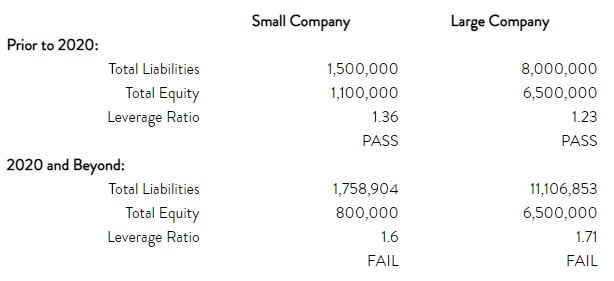 There’s some welcome news for businesses that use GAAP (Generally Accepted Accounting Principles) for their financial statements. There is now a year delay on implementing fairly cumbersome new lease accounting standards.
There’s some welcome news for businesses that use GAAP (Generally Accepted Accounting Principles) for their financial statements. There is now a year delay on implementing fairly cumbersome new lease accounting standards.
The Financial Accounting Standards Board (FASB) voted last month to delay ASC 842 Leases, a standard requiring the capitalization and debt of virtually all leases on the balance sheet. The new standard was supposed to take affect for private businesses and other non-public entities for fiscal years starting after Dec. 15, 2019. Now the new standard will take affect for fiscal years starting after Dec. 15, 2020.
The new standard started for public companies for fiscal years starting after Dec. 15, 2018. Because of challenges some public companies have faced in abiding by the new standard, FASB voted to delay the new requirement for non-public entities.
Operating leases generally include the rental of real estate, office space and some equipment. Conversely, capital leases presently include those that meet any one of four conditions. It essentially had the lease extend over most of the asset’s useful life or offered either a bargain purchase price or the transfer of ownership at the end of the lease.
READ MORE: Understanding Financial Statements: How Privately-Held Business Owners Can Benefit
Under the new GAAP requirement, virtually all operating leases and capital leases will be recorded as “right of use” assets and “capital lease obligations.” While this may not sound dramatic, in terms of debt covenants, it is. Since operating leases are generally for expensive and long-term items, the calculation will generally create a large liability that was not there before.
This could potentially distort bank covenant calculations. The consequence is that companies may not meet their bank covenants. Currently, only capital leases are considered debt and therefore affect covenant calculations.
Here's an example of the impact:
A simple company with total liabilities of $1.5M prior to this change may have a small operating lease for its office space. Presume for our a present value example, that the lease is for 10 years and requires payments of $2,500 per month at a 3% interest rate. The entry at inception of such a lease will record a liability of $258,904, an increase to the previous liability balance by over 17%.
Or in the case of a larger company:
Let’s use a company with total liabilities of $8M prior to this change with three warehouses each requiring $10,000 monthly payments with 10-year terms and the same present value calculation at a 3% interest rate. The entry at inception of these leases will record a liability of $3,106,853, an increase to the previous liability balance of nearly 39%.
To see these changes as your bank will, consider a standard leverage ratio (total liabilities divided by total equity). Covenant requires a ratio of 1.5 or less.

As the examples show, the extent of this change will vary from company to company and will be determined by the complexity of the business. The underlying question is “Are you ready to explain this to the bank?”
Even though the new standard has been delayed, non-public entities should start determining the impact it may have on their debt covenants. Now is the time to talk to your banker.
Some banks will be willing and able to change the covenant calculations to address the new accounting standards, although some banks may be less willing or able to do so. This may put you in default if you fail the covenants. By speaking with your bank today and identifying their plans for the future, you will be able to ensure that there is no gap between your financials and your bank.
Other alternatives would be to determine if the bank is willing to accept special purpose framework financial statements, such as income tax basis of accounting, rather than GAAP. The changes proposed by FASB would not affect this reporting method. Another alternative is to ask for a GAAP exception for the new lease standards.
We’ve done the research and have the tools and strategies ready to embrace these changing requirements. Contact us today to assess the impact to your company and set up the best practices to track all of the new requirements.





